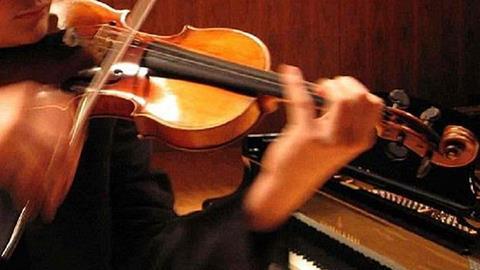Leah Hollingsworth hears the concert at the Juilliard School’s Paul Hall on 18 October 2019

Violist Misha Amory put together a thoughtful programme at Juilliard, which he explained brilliantly: ‘My idea is to offer glimpses, or snapshots, of music being written for the viola at five junctures during the 1900s. Each glimpse is “stereoscopic”, consisting of two works written close together in time that mirror each other, contradict each other, or otherwise cast each other in relief.’
His first pairing, Kodály’s Adagio (1905) and Bridge’s Pensiero (1908) presented two works boasting beautiful colour changes, long lines, thoughtful use of vibrato, and the incredible bow control evident throughout the programme. The ‘Thema mit Variationen’ from Hindemith’s op.31 no.4 Sonata (1922) and the ‘Furiant’ from Arthur Bliss’s Viola Sonata (1934) followed, and Amory immediately impressed with the opening octave passage of the Hindemith and the devilishly difficult double-stop lines, which he played with stunning ease. The Bliss demanded extreme athleticism and Amory played with utter control and precision, taking advantage of the bits of lyricism in the midst of an otherwise slightly mechanistic work. Bruce Adolphe’s Dreamsong (1989) and George Benjamin’s Viola, Viola (1998) closed the first half satisfyingly: each phrase of Dreamsong was carefully crafted, purposeful and wonderfully played. The tightly interwoven lines of the Benjamin (performed with Amory’s wife, Hsin-Yun Huang) required finesse as well as acrobatics, incredible ensemble as well as deep emotion.
Two elegies were next: Carter’s (1943) and Stravinsky’s (1944). Both were achingly beautiful, played with pristine intonation and phrasing. Six movements from Kurtág’s Jelek (1965) provided some emotional relief – if anything, they almost felt too careful; I wished for more playfulness and less control. After an evening of fantastic playing, Amory saved the best for last: the Adagio movement from Shostakovich’s Viola Sonata (1975) was packed with emotional intensity expressed through Amory’s perfect bow control and incredible sound palette.
LEAH HOLLINGSWORTH











































No comments yet